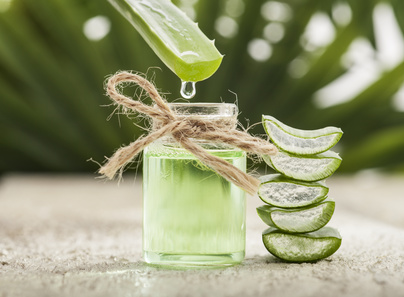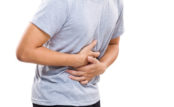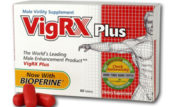 You probably know Provestra best as a natural libido supplement for women. Indeed that’s what it is – Provestra is made with herbals, botanicals, and nutrients like ginseng and black cohosh root that gently address the shifting hormones that tend to occur in women over time.
You probably know Provestra best as a natural libido supplement for women. Indeed that’s what it is – Provestra is made with herbals, botanicals, and nutrients like ginseng and black cohosh root that gently address the shifting hormones that tend to occur in women over time.
Those shifting hormones are most likely why you’re reading this article. They can make sex painful, to say the least, and can fade the satisfaction of a once thrilling sex life.
Yet the same function that makes Provestra of interest to women approaching, going through or emerging from menopause – that biological milestone that all women face. It’s a question we’re asked all the time here at Natural Health Source: Can I use Provestra to reduce menopause symptoms? Your answer: possibly, but speak with your doctor first.
Why You Have Menopause Symptoms
You have menopause symptoms because you’ve got less estrogen. Menopause is the end of fertility and the menstrual cycle. The ovaries stop making estrogen during this process and, more famously, periods have stopped for 12 months.
The average age for menopause among American women is 51, although it can happen earlier, and can be triggered by factors beyond age, including surgery, disease treatment or an illness.
The age at which you go through menopause is determined primarily by your genes. Some women go through menopause much earlier – even before 40. This is called premature menopause.
The first sign of menopause tends to be an irregular menstrual cycle. That’s when the ‘fun’ begins. As your hormones shift, your body may respond with menopause symptoms, including:
- Mood Swings
- Decreased Libido
- Hot Flashes
- Night Sweats
- Head Aches
- Vaginal Dryness
- Painful Sex
- Sleeping Problems
Lower estrogen also leads to thinning of vaginal tissue. This can result in urinary incontinence and vaginal itching. This may also explain why sex can be painful in this transitional period. Consider Vigorelle natural lubricant for women if this is a problem.
How Long Does Menopause Last?
Menopause typically lasts no more than four years, although symptoms can linger. The process occurs slowly, over the following three stages:
Perimenopause – Your periods become irregular in this phase, but they haven’t stopped yet. This often happens around 47. Many women can still get pregnant in this stage.
Menopause – Your final menstrual cycle happens in menopause, although you won’t know for sure until you haven’t had one for 12 months. Menopause symptoms hit hard during this stage – and it’s here in particular when Provestra may be of interest.
 Postmenopause – Like it sounds, postmenopause starts a year after your final cycle. You’ll be in this phase for the rest of your life. The good news is that menopause symptoms usually wear off in this stage – and note that vaginal bleeding is not normal 12 months after your final cycle, so see your doctor quickly if this is an issue.
Postmenopause – Like it sounds, postmenopause starts a year after your final cycle. You’ll be in this phase for the rest of your life. The good news is that menopause symptoms usually wear off in this stage – and note that vaginal bleeding is not normal 12 months after your final cycle, so see your doctor quickly if this is an issue.
The most accurate way to test for menopause is to simply watch your menstrual cycle. You’re on menopause notice when they become irregular and likely nearing perimenopause if you’re in your mid to late 40s.
Your doctor can also do a blood test for follicle stimulating hormone (FSH), which will spike as your ovaries shut down. And of course, you’ll likely know you’re in perimenopause or the event itself with the menopause symptoms we’ve talked about here, like hot flashes and dryness.
Menopause Symptom Treatment Options
Provestra may help some menopause symptoms, but that’s a conversation you’ll need to have with your doctor. He or she will review your options with you, which may include:
Lifestyle Changes – The basics of healthy living go a long way during all stages of your life, and even more so during the big change. Use this as a chance to kick smoking and or excessive alcohol consumption (more than two drinks a day). Also, dress in layers to reduce the effects of hot flashes. Avoid things that can trigger them, like caffeine and spicy food.
Paradoxically, staying sexually active might help reduce menopause symptoms too, despite that dryness, because it may help preserve your vaginal lining.
Prescription Medications – Your doctor may prescribe synthetic estrogen and/or a combination of it with progesterone, depending if you still have your uterus. This is hormone replacement therapy – something we’ve written about extensively here at Natural Health Source.
Don’t take HRT if you’ve ever head breast cancer, endometrial cancer, liver disease, blood clots or if you’ve had a stroke. Don’t take it if you have undiagnosed bleeding either.
There have been rumblings over the years that HRT may increase risk of breast cancer and affect calcium absorption. Speak with your doctor about this and the latest research on hormone replacement therapy.
Prescription and OTC Lubricants – Your doctor may also prescribe topical estrogen or suggest you try non-prescription estrogen or even an over the counter lubricant for women. Of the latter, we suggest Vigorelle – a natural lubricant made with topical botanicals that instantly lubricate and can help to make sex much more enjoyable.
A Closer Look at Provestra
Provestra is a natural libido supplement for women. Unlike Vigorelle, which is a lubricant, Provestra is a long-term option for women that gently addresses shifting hormones and helps optimize the body for passion and enjoyment.
Yet, if you look closer at the Provestra formula you’ll also find herbals, botanicals and amino acids that may also reduce the effects of menopause symptoms. You’ve heard of black cohosh root – yes – but the Provestra formula in general may be of interest before, during and/or after menopause if your symptoms are troublesome.
The Provestra formula includes:
L-Arginine – One of 20 naturally occurring amino acids in the body, arginine is a precursor to nitric oxide, which helps dilate your blood vessels.
May Help With: Less dryness.
Indole-3-Carbinole (I3C) – I3C is rich in carbinol, which is found naturally in cruciferous vegetables like cabbage, broccoli and brussels sprouts. It’s linked to better balance of estrogen levels, and may help reduce symptoms from plummeting levels of this hormone.
May Help With: Estrogen levels.
Damiana Leaf – This is a wild shrub native to Central America, Mexico and South America. It’s been used as an aphrodisiac for hundreds of years, and appears to reduce several of the more annoying symptoms of menopause.
May Help With: Headaches, Hot Flashes, Depression.
 Black Cohosh Root – One of the best-known natural remedies for women, black cohosh root is a flowering shrub native to North America. Some evidence links it to less cramping and hot flashes – both selling points Provestra’s many loyal customers.
Black Cohosh Root – One of the best-known natural remedies for women, black cohosh root is a flowering shrub native to North America. Some evidence links it to less cramping and hot flashes – both selling points Provestra’s many loyal customers.
May Help With: Hot flashes, vaginal dryness.
Red Raspberry – Used for centuries to strengthen the reproductive system, red raspberry may help symptoms of PMS. More importantly, though, it might also alleviate some of the worst menopause symptoms.
May Help With: Hot flashes.
Kudzu – Kudzu might help you fight off a cold, and may help you make menopause a little more bearable in the process. This Chinese herb is an excellent source of estrogen.
May Help With: Hormone imbalances.
Vitamin C – Another cold-fighting nutrient and one of the best anti-aging secrets out there, vitamin C also helps synthesize female sex hormones estrogen and progesterone. That helps make things more comfortable ‘down there’ and should ease the pain that many women experience during this transitional time.
May Help With: Dryness, elasticity, urinary leakage.
Provestra for Menopause: Yes or No?
That depends what your doctor says. If you review the formula with him or her, and they clear it, congratulations – you’ve joined thousands of women who use Provestra to reduce menopause symptoms, and reduce the inevitable discomfort they cause.
You may get more sex as a bonus.
Still, it’s important to take your health seriously. Provestra won’t fix any underlying issues that make menopause symptoms worse, like drinking and smoking. Nor will it address any medical issues that are unique to you.
That’s yet another reason why you’ll want an open communication with your doctor during all stages of menopause – before, during and after the change – and keep both an open mind and a close eye on your body and what it does during this milestone that affects all women at some point.
Many women find Provestra helps reduce their menopause symptoms. Clear that with your doctor, though, and with that blessing, you may soon be among them.




